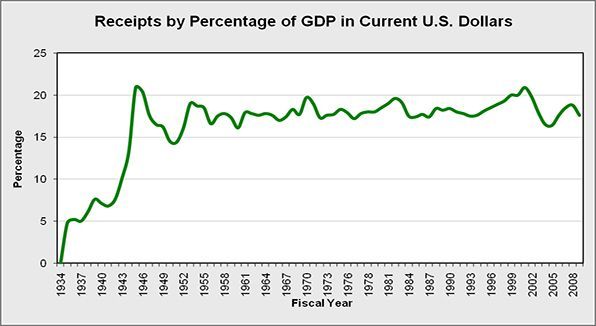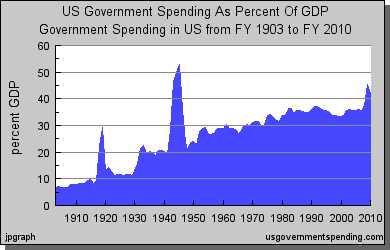Republican and former House Speaker Newt Gingrich appeared at a local "jobs summit" yesterday, blasting Washington politicians for being clueless about how to spur job growth. Gingrichand his messagehasn't changed much over the last decade when his party rode an anti-Democratic sentiment into House and Senate dominance. The continued strength of his party later allowed the GOP to dominate all three branches of government, including the White House, with the election of George W. Bush at the turn of the century.
His solution to fixing American's lingering job shortfall, similar to his call in the 1990s, was all about tax cuts.
Gingrich proposed five "major bold tax cuts" that he described as sure to jumpstart American industry. He wants to allow workers and employers a two-year, 50 percent reduction of the payroll tax, financed by unspent money from the Troubled Asset Relief Program and stimulus money, which he said would "free up" cash for people to hire and invest. He also calls for the government to allow small businesses (businesses with less than 100 employees) to recoup 100 percent of costs for the purchase of new equipment to help them invest in new technology.
Gingrich also called for a reduction of the business tax rate, even though a considerable portion of taxes collected federally is not provided through personal tax, and could represent a significant drop in federal revenue. He wants to abolish taxes on capital gains (China, he says, does not use the tax) and put a permanent end to the estate tax. The audience met his call to abolish the estate tax with huge applause, even though fewer than 100 Mississippi families even qualify to benefit from it, given that the current exemption from estate taxes is $3.5 million through 2010.
The speaker wasted no time ridiculing the leaders in Washington. He compared President Barack Obama's attempts to improve the economy and create jobs to the government's ability to grow corna job that should instead be left to farmers.
Meanwhile, the Obama administration hosted a high-profile jobs summit at the White House Thursday, containing business leaders and economists. Gingrich said Harvard graduates are ill-suited to discuss the economy, even if they specialize in the economy.
"Entrepreneurs and private industry create real jobs, not the government," Gingrich said. He also attacked the nation's current social welfare system, arguing that it teaches children to "lack energy, lack pride and lack vision," and he praised the nation's decision to pass welfare reform in the 1990's.
Gingrich took questions after his initial monologue. The audience threw few curveballs at the speaker, though Gingrich revealed through some answers that he understood why some companies outsourced jobs to other countries. Gingrich said the country needed to create a more effective business environment to retain businesses.
"Show me who wants to have a business that's heavily regulated, heavily unionized, heavily litigated, taxed heavy and not outsource?" Gingrich said. "If you can't make your product less expensive here, you're not going to make it on the world market. I want to make it less expensive through modernization, entrepreneurship and less taxation."
Oddly, the audience only gave Gingrich one question that pertained directly to improving employment at his "jobs summit." One woman asked for advice on how to handle lingering joblessness.
"Be very, very persistent," Gingrich said, and urged the unemployed to lower their standards and take "almost any job available," if not strictly for the sake of networking opportunities provided.
"You can begin the process of talking to people about a new job. It's an enormous step in the right direction," Gingrich said, without commenting upon the limited networking opportunities available at local fast-food joints, or a single mother's inability to settle for an evening job without evening child care.
Many of the Millsaps students in attendance approved of the speaker's presentation.
"We don't have many conservatives here on campus," said Millsaps political science major Bethan Pierson. "So this was a way for conservative students to hear similar viewpoints from politicians who believe in what we believe in."


 http://www.project.org/info.php?recordID=151
http://www.project.org/info.php?recordID=151
 http://www.usgovernmentspending.com/us_20th_century_chart.html
How much should the government be spending of GDP? What would be sustainable in you all's opinion?
It's really strange how the 1950's and 1960's keep being brought up as if those days are somehow comparable to now. I wish you guys much luck with selling that.
http://www.usgovernmentspending.com/us_20th_century_chart.html
How much should the government be spending of GDP? What would be sustainable in you all's opinion?
It's really strange how the 1950's and 1960's keep being brought up as if those days are somehow comparable to now. I wish you guys much luck with selling that.
Comments
Use the comment form below to begin a discussion about this content.